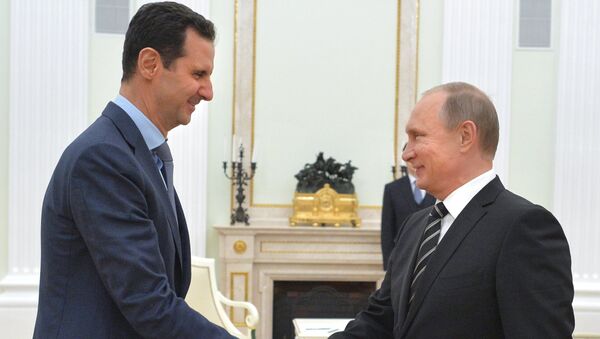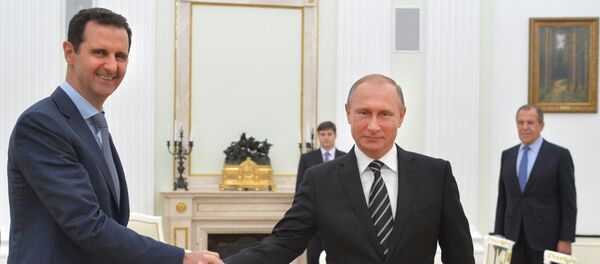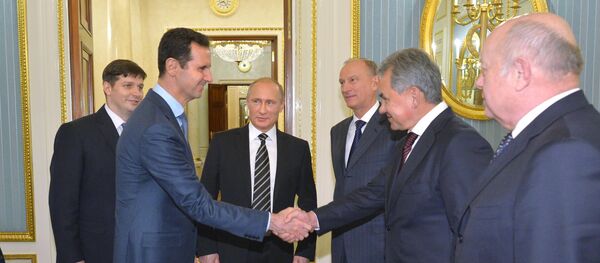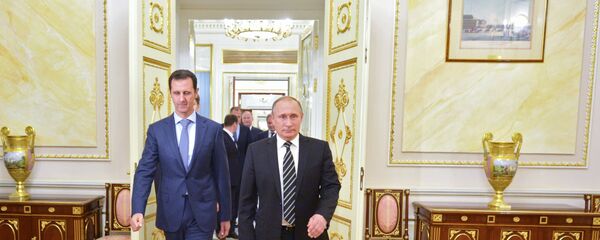“The current trip could be regarded as a zenith of the strategic bilateral relationship between the two,” the diplomat said.
Notably, he added that the visit came amid a very difficult war, which has been raging in the country for over four years already. The visit is basically aimed at allowing to clarify the means of combating terrorism: by stamping it out and preventing its further spread in Syria and throughout the whole region of the Middle East.
The message of the visit was quite simple, the diplomat said: the recently established anti-terrorist coalition uniting Russia, Syria and potentially other parties is aimed at fighting terrorism with maximum accuracy and efficiency, and at preventing further terrorist attacks.
This, in turn, should permit seeking a political settlement to the conflict; such a settlement is impossible without the total elimination of terrorism.
The fight against terrorism has become a priority at the international arena both for the coalition and for Syria, which has been battling it from the very start.
President Putin, in turn, wanted to demonstrate Russia’s dedication to joining its ally Syria in the fight against terrorism.
The Russian leader, the diplomat says, apparently wanted to demonstrate to the world that everything the Western countries are calling for – interference into the internal affairs of a sovereign state and the ouster of President Assad, has nothing to do with international law.
More than once, President Putin stressed that only the people of Syria have the right to decide the country's future. Only they have the right to elect their government and to decide on which steps need to be made to fight terrorism.
Syria, he stressed, welcomes any country which really wants to join the fight against terror. Syrians want all the countries of the region to choose a right way of the fight and stop their support of the terrorist groups.
Turkey should close its borders and Saudi Arabia should stop its support of the armed terrorist groups. Jordan should also follow the decisions of the international community, only then can it be called an international effort against terror.
And only then will it really mean a joint regional effort against terror in the region.





